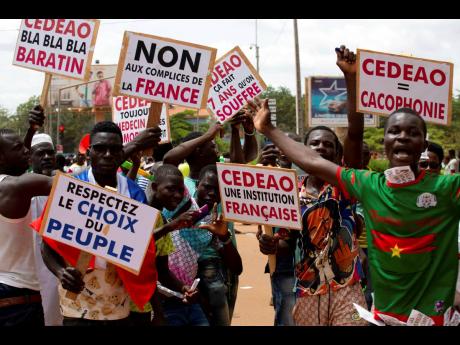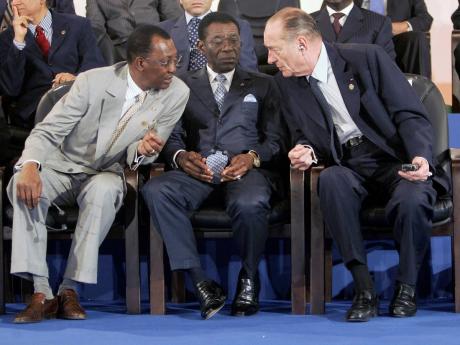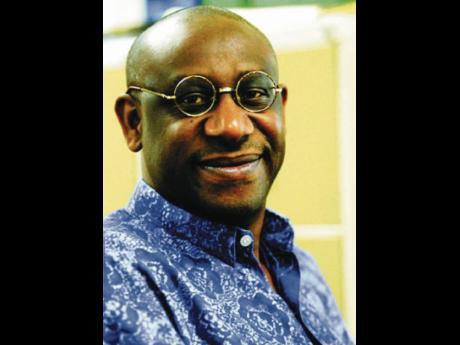Adkeye Adebajo | The death of Françafrique
Former French president François Mitterrand (1981-1995) prophetically noted in 1957: “Without Africa, France will no longer have a history in the 21st century.” From the 17th to the 19th centuries, French slave traders operating out of the ports of Nantes, Bordeaux, La Rochelle, and Le Havre ferried 1,381,000 African slaves across the Atlantic to work on sugar plantations in Saint-Domingue (Haiti), Guadeloupe, Martinique, and French Guiana. Advocating a racist mission civilisatrice (civilising mission), Paris also pursued over a century of colonial rule in Africa, culminating in the deaths of one million Algerians and the massacre of 86,000 Madagascans.
For the past six decades, an intricate network of political, military, economic, and cultural ties – known as Françafrique – have been used to promote what French leaders regarded as a politique de grandeur. All French presidents from Charles de Gaulle (1959-1969) to Emmauel Macron (since 2017) have continued this neo-colonial Africa policy. French coopérants have historically provided technical assistance to African ministries, sometimes overruling African ministers. In a clearly corrupt system, African leaders funded the political campaigns of French political parties. For nearly three decades, highly personalised relations with African leaders were entrusted to Jacques Foccart, an éminence grise and master of the secret du roi, who established his infamous réseaux africains: clandestine networks of spooks and soldiers, and murderers and mercenaries.
FOLIE DE GRANDEUR
Several francophone African leaders subserviently referred to French president de Gaulle as “Papa”. In a 1958 referendum, the French leader offered his African “children” a choice between joining a Communauté Française, in which Paris would still retain control over foreign and defence policy or independence, in which France would sever all financial and economic ties. Only enfant terrible, Guinea’s Sékou Touré, chose freedom over neo-colonialism. A vengeful de Gaulle cut off all economic aid; expelled Guinea from the franc zone; and carted telephones, archives, and civil service files back to France. Though all francophone African countries were eventually granted nominal independence by 1963, all signed economic and military pacts which gave France continued control over their sovereign affairs.
During the Cold War, Washington considered France’s role to be useful in keeping the Soviet bear out of Africa. Paris had military bases in Djibouti, Central African Republic (CAR), Côte d’Ivoire, Gabon, and Senegal. For six decades, the French gendarme acted like a pyromaniac fireman intervening over 50 times in Africa. The franc zone saw 13 francophone African states tying their CFA franc to the French franc and the French treasury holding all of their foreign reserves. Some 80,000 French expatriates flooded into Africa pour faire le CFA. French industrial giants like CFAO, SCOA, Elf Aquitaine, and Bouygues continued to monopolise markets they had cornered during the colonial era. France’s “cooperation agreements” gave it priority access to Africa’s strategic minerals: Gabon and Niger provided Paris with 100 per cent of its uranium; Guinea 90 per cent of its bauxite; and Cameroon, Congo-Brazzaville, and Gabon 70 per cent of its oil.
PARISTROIKA
With the end of the Cold War, the idea of an exclusive Gallic chasse gardée (private hunting-ground) in Africa came under increasing challenge. French reversals in Rwanda and Zaire left its Africa policy in disarray: it trained and armed Rwandan génocidaires, and supported a sinking Mobutu Sese Seko long after he had passed his sell-by date. By 1990, pro-democracy demonstrations in Benin, Côte d’Ivoire, Gabon, and Niger forced many francophone states to adopt various forms of multiparty democracy. At the Franco-African summit in La Baule in 1990, Mitterrand announced a policy dubbed “Paristroika”: linking continued aid to democratic reforms. But France continued to apply democracy inconsistently, sanctioning sham elections and resuming aid to fraudulent regimes.
Since Paris had periodically rigged elections in its African possessions during the colonial era, it was easy for France to condone undemocratic behaviour on the continent. President Jacques Chirac described democracy as a “luxury” for Africa, demonstrating the prejudiced paternalism typical of the French political class, many of whose members – like Chirac himself - have themselves often been involved in sleaze and scandals. Paris’s unilateral 50 per cent devaluation of the CFA franc in 1994 further dealt a devastating blow to its Africa policy.
LA FIN DE LA CHASSE GARDEÉ
President Nicolas Sarkozy (2007-2012) rode to power on the crest of Islamophobic xenophobia, having served as a right-wing interior minister who had increased police harassment of African and Arab immigrants. Uncouth, acerbic, and deeply prejudiced, during a speech in Dakar in July 2007, he argued that France might have made “mistakes” but believed in its “civilising mission … and did not exploit anybody”. The French pseudo-philosophical president then, incredibly, noted: “Africans have never really entered history… . In a world where nature controls everything, man has remained immobile in the middle of an unshakable order where everything is determined. There is no room either for human endeavour or for the idea of progress.” This racist speech was widely condemned across Africa and its diaspora. France had earlier provided military support to prop up the autocratic regimes of Chad’s Idriss Déby and CAR’s François Bozizé in 2006, with Sarkozy saving Déby’s regime again in 2008.
Emmanuel Macron has continued to promote these cosy and corrupt relationships. Despite rhetorical pretensions of pursuing a new approach in Africa, he has persistently treated the continent like a supplicant of the Françafrique system. Macron has defended the Déby family autocracy in Chad, backed the 41-year misrule of Cameroon’s Paul Biya, and meddled in Libya to bolster warlord General Khalifa Haftar. He has further continued Sarkozy’s Islamophobia and echoed his predecessor’s prejudice in 2017, notoriously describing Africa’s challenges as “civilisational” before complaining that African women having seven or eight children was “destabilising” the continent.
Ghastly incidents involving the French military, for which Paris refused to take proper responsibility, have also exacerbated its deep unpopularity across Africa. In 2013, UN investigators released a report implicating French soldiers in the sexual abuse of children in CAR. No charges were brought against these predators. Another UN report noted that a 2021 French airstrike killed at least 19 civilian members of a wedding party in central Mali. France again refused to take responsibility. In recent times, anti-French protests have erupted in Bangui, Bamako, Ouagadougou, Conakry, N’Djamena, Dakar, and Abidjan, exposing the Gallic emperor’s nakedness.
ADIEU, L’AFRIQUE
Perhaps nothing better symbolises the death of the six-decade system of Françafrique than the spectacular collapse of France’s utterly failed decade-long counter-terrorism war in the Sahel. France effectively used regional soldiers as cannon fodder without the resources or vision to pursue a developmental approach to peacebuilding. The semi-arid Sahel now appears to represent France’s Afghanistan as Paris – already expelled from its military base in Mali in 2022 – has recently been asked by putschists in Niger to withdraw its 1,500 troops from the country.
France’s support of autocratic and corrupt leaders like Chad’s murdered Idriss Déby – described by Macron as a “loyal friend” – has further discredited its role in Africa. Macron’s hectoring, omniscient style has not gone down well on the continent. He spoke out of both sides of his mouth in condoning the coup d’état in Chad in 2021, and only a few weeks later, condemning the military putsch in Mali. More recently, he excoriated putschists in Niger, while embracing soldiers in Gabon.
France has not been in the front ranks of global power for eight decades. Its seat on the UN Security Council is anachronistic. It is the seventh largest economy in the world, behind India, and is likely to be overtaken soon by Brazil. It still wields influence within the European Union, but it is clear that Germany is the continent’s leading power. Paris can no longer afford its politique de grandeur in Africa and has increasingly sought to use the UN and the EU to subsidise its African adventures. French intervention on the continent has now, however, become a costly relic of a bygone age of imperial delusion.
Françafrique is finally dead. It is time to give it a decent burial.
Professor Adekeye Adebajo is a senior research fellow at the University of Pretoria’s Centre for the Advancement of Scholarship in South Africa. Send feedback to columns@gleanerjm.com.



